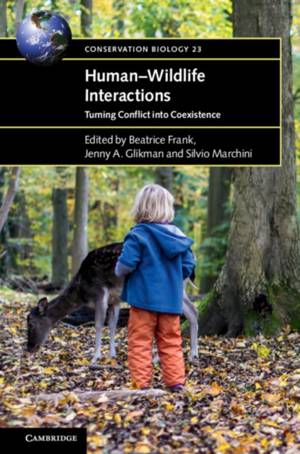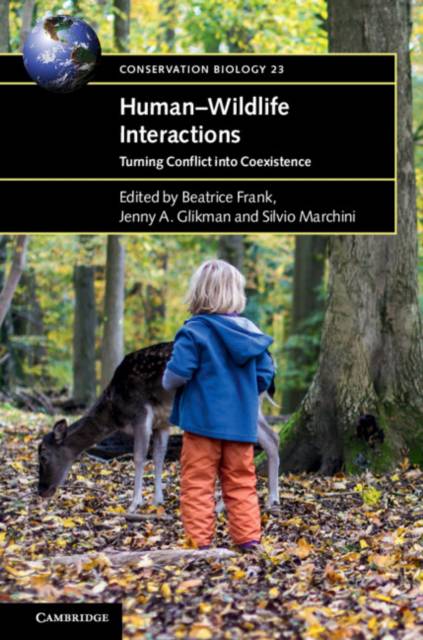
- Afhalen na 1 uur in een winkel met voorraad
- Gratis thuislevering in België vanaf € 30
- Ruim aanbod met 7 miljoen producten
- Afhalen na 1 uur in een winkel met voorraad
- Gratis thuislevering in België vanaf € 30
- Ruim aanbod met 7 miljoen producten
Zoeken
Human-Wildlife Interactions
Turning Conflict into Coexistence
€ 74,95
+ 149 punten
Omschrijving
Human-wildlife conflict (HWC) is one of the most complex and urgent issues facing wildlife management and conservation today. Originally focused on the ecology and economics of wildlife damage, the study and mitigation of HWC has gradually expanded its scope to incorporate the human dimensions of the whole spectrum of human-wildlife relationships, from conflict to coexistence. Having the conflict-to-coexistence continuum as its leitmotiv, this book explores a variety of theories and methods currently used to address human-wildlife interactions, illustrated by case studies from around the world. It presents some key concepts in the field, such as values, emotions, social identity and tolerance, and a variety of insights and solutions to turn conflict into coexistence, from individual level to national scales, including conservation marketing, incremental and radical innovation, strategic planning, and socio-ecological systems. This volume will be of interest to a wide range of readers, including academics, researchers, students, practitioners and policy-makers.
Specificaties
Betrokkenen
- Uitgeverij:
Inhoud
- Aantal bladzijden:
- 476
- Taal:
- Engels
- Reeks:
- Reeksnummer:
- nr. 23
Eigenschappen
- Productcode (EAN):
- 9781108402583
- Verschijningsdatum:
- 27/06/2019
- Uitvoering:
- Paperback
- Formaat:
- Trade paperback (VS)
- Afmetingen:
- 213 mm x 229 mm
- Gewicht:
- 771 g

Alleen bij Standaard Boekhandel
+ 149 punten op je klantenkaart van Standaard Boekhandel
Beoordelingen
We publiceren alleen reviews die voldoen aan de voorwaarden voor reviews. Bekijk onze voorwaarden voor reviews.










